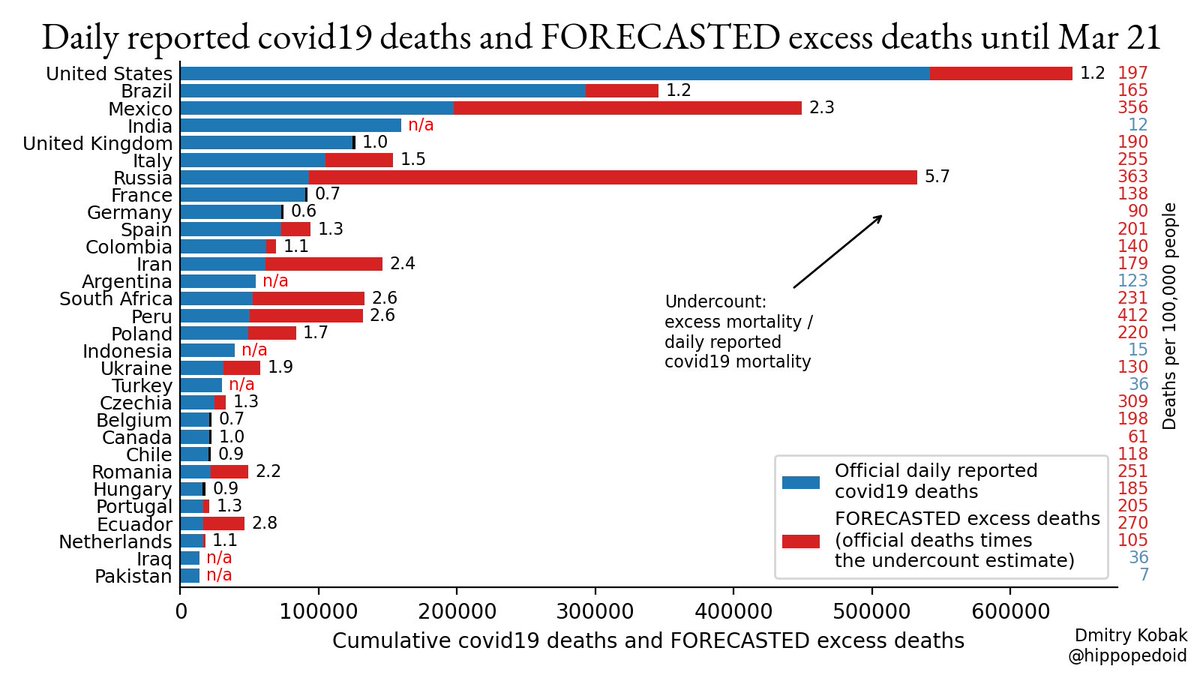
Would an earlier lockdown really have saved tens of thousands of lives?
A thread summarising the main points of my article earlier today. (References at the end.)
A thread summarising the main points of my article earlier today. (References at the end.)
Many people have claimed that if only the government had ‘followed the science’ last year and locked down a week earlier and closed our borders - as other countries did - we could have saved tens of thousands of lives.
I have tried to look at whether an earlier lockdown really would have reduced our eventual death toll over both waves. I have relied not on the models on which these claims are made, but looked at what has actually happened in Europe over both waves to date.
Cross-country comparisons have many limitations so I restricted analysis to Europe as they are closest to the UK in terms of their populations age structures, climate/seasons and healthcare systems - and these are they key factors in determining the number of deaths from COVID
It is true that two countries - Norway and Finland - who locked down a week before the UK (and closed their borders) have been remarkably successful in having both small first and second waves and no excess mortality to date. 

But they are the exceptions – what happened in most other countries in Europe who also locked down (and closed their borders) at the same time is that they did have very small first waves in Spring 2020 but this was followed by much larger second waves in Autumn / Winter 2021 



And this happened despite second and third lockdowns as people struggled to maintain compliance with restrictions for months. Such an outcome was predictable as lockdowns in the absence of vaccines could only postpone - not prevent - infections, hospital admissions and deaths.
And by effectively delaying part of the first wave from the Spring until the second wave in the Winter, this meant that many countries had a higher proportion of the population still susceptible to infection and so led to even higher death tolls as health systems struggle to cope
And this would have been even worse in the UK with one of the lowest numbers of hospital & ICU beds per head in Europe – which would have led to even higher excess deaths – both from COVID and other causes as capacity was overwhelmed. 

Of course, looking at just COVID mortality doesn’t give the full picture as different countries code deaths differently and so we need to look at excess mortality which is the best comparative measure but that will have to wait until the end of the second/third wave in the summer
But based on current trends, it seems likely that many of these countries that we thought were doing well due to their early lockdowns and small first waves will end up having higher excess mortality than the UK including Czechia, Poland, Portugal, Romania, Hungary, etc. 

To be clear, I am not arguing that we should not have had lockdowns. Despite my major concerns about their adverse health impacts, ultimately I did support them because there was no doubt that the NHS would have been overwhelmed in both waves without them
which in many ways it was as many elective services had to be stopped) and so lockdowns are likely to have saved more lives than they cost and produced more overall health benefit than harm - as per the most recent and comprehensive analyses done - and especially with vaccines
But the point I am making is that getting timing of lockdowns right is not straightforward – especially when you have to balance their significant harms against their benefits- and there really is not good evidence that an earlier lockdown would have saved lives over both waves
The truth is that ‘the science’ in February and March 2020 was very uncertain and the evidence base was very poor (and still is in many ways) and it is far too simplistic to say, as many do, that, ‘if we had done this, this would have happened.’
Both those advising and deciding had to make recommendations and decisions based on the evidence available at the time which no doubt would have been different with the benefit of hindsight.
Of course, we must learn the lessons from last year and have an inquiry so we are better prepared next time – but for now the priority must be to complete the vaccine roll-out ASAP which will save lives now, enable restrictions to be lifted, and ensure this is our last lockdown.
References:
Europe COVID data
ourworldindata.org
Excess deaths raw.githubusercontent.com/dkobak/excess-…
economist.com/graphic-detail…
ICU beds:
sluggerotoole.com/2020/03/04/nor…
Cost-benefit analysis of lockdown:
gov.uk/government/pub…
The full article:
telegraph.co.uk/news/2021/03/2…
Europe COVID data
ourworldindata.org
Excess deaths raw.githubusercontent.com/dkobak/excess-…
economist.com/graphic-detail…
ICU beds:
sluggerotoole.com/2020/03/04/nor…
Cost-benefit analysis of lockdown:
gov.uk/government/pub…
The full article:
telegraph.co.uk/news/2021/03/2…
• • •
Missing some Tweet in this thread? You can try to
force a refresh




